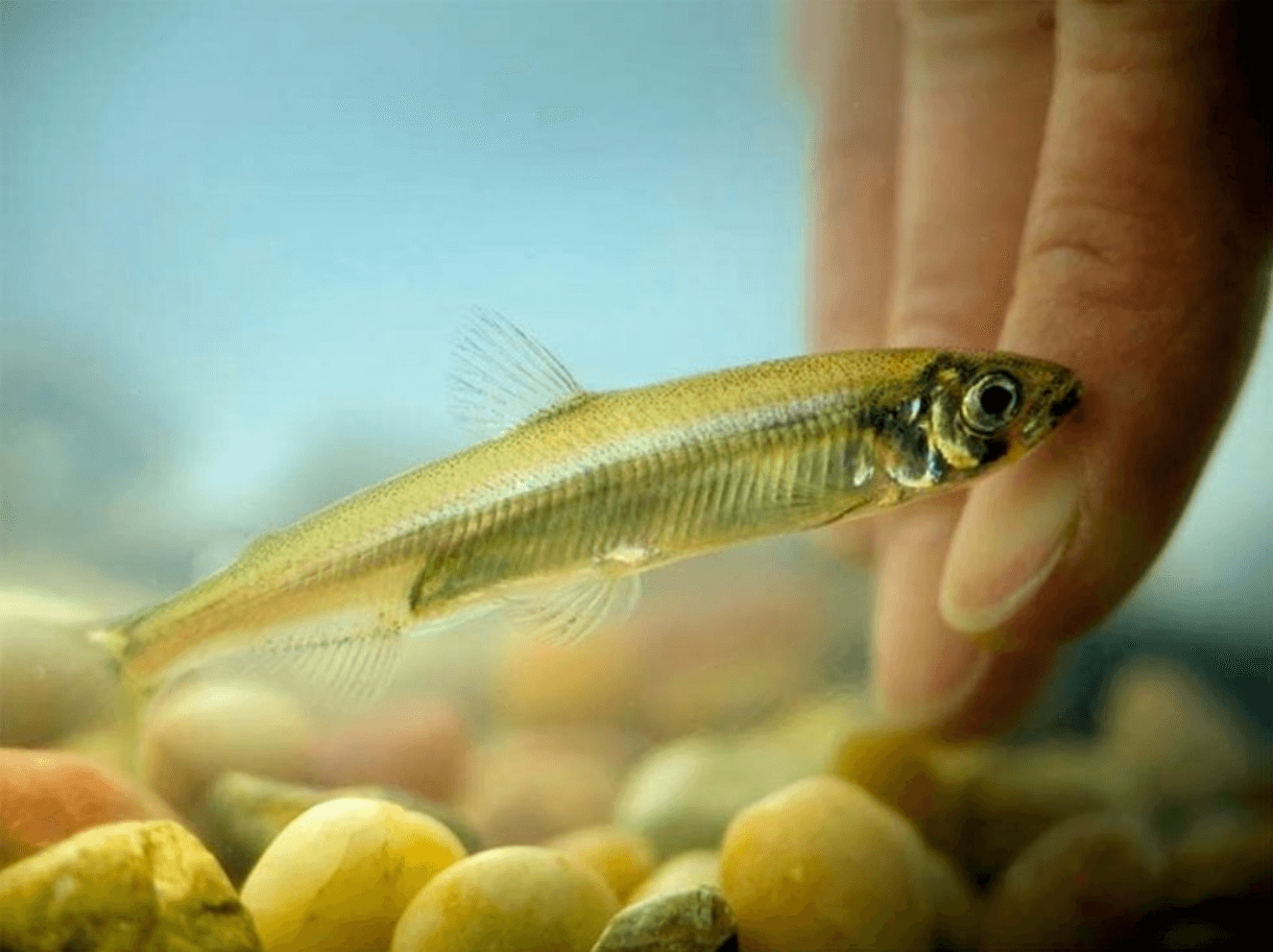

California’s Example
In the midst of ongoing drought, the state is facing a stark choice right now: Watch “uncaptured” rain water flow away naturally, or reroute the water for agriculture and cities and extinguish a unique genetic code from the face of the Earth.

Delta smelt. The once-abundant species is viewed as a proxy for the health of the Delta ecosystem.
California was recently soaked by intense rainstorms. Over a three-week period, San Francisco experienced more rain than it has seen since the Civil War. The historic rains have helped replenish California’s depleted reservoirs, yet the Department of Water Supplies expects to be able to deliver only 30 percent of the requested supply in 2023. One third of California is still in a severe drought, even after the storms.
Controversy erupted after the storms when it was reported that only a small fraction of the flood flows was able to be captured and stored in the state’s water supply reservoirs, due to environmental restrictions.
It turns out that an endangered species called the Delta smelt rely on the first big rain every winter to migrate west along the Sacramento-San Joaquin River Delta. If more water had been captured to replenish the region’s depleted reservoirs, then the few individual remaining fish would likely have been wiped out.
Although California’s population has been stable at around 39 million for the past few years, Central California was well on its way toward exceeding its “carrying capacity” when, during the 1950’s and 60’s, enormous pumps were built to send Delta water to the State Water Project, which now serves 27 million people.
Over time, the huge pumps disrupted fish and wildlife in the Delta, including smelt and salmon, sometimes grinding them up, sometimes making sloughs run backward, and other times removing up to half the Delta’s fresh water. Once plentiful, smelt and salmon numbers crashed. According to the Water Education Foundation:
What ails the Delta smelt is simple: The ecosystem they are adapted to has been drastically altered. The Delta’s wetland habitat has been drained and developed, and water exports from the estuary have steadily increased from the 1960s through the early 2000s.”
This winter, scientists have located only five smelt in the Delta. Yet, there’s enormous political pressure to give up on the smelt and capture as much rainwater as possible to serve the farms and growing cities to the south.
People have warned about the long-term effects of Congress’ immigration policies since the federal government began to quadruple the numbers from 1950 to today. But we needn’t rely on dire warnings or apocalyptic projections. We are witnessing the downsides right now.
Acknowledging tradeoffs can be uncomfortable. But that is the beginning of wisdom. It may be too late to save the smelt. But perhaps we will learn from this experience that America’s immigration-driven population growth is driving species to the brink of extinction all over the country; not in theory, but in practice. The Congressional Budget Office projects all population growth to be a result of federal immigration policies by 2043.

Illegal immigration now outpaces legal immigration by roughly 2-to-1. Although by law, persons entering the U.S. illegally must be detained, the Department of Homeland Security released 900,000 people into the interior last year. The border crisis has only grown as the credibility of the legal limits set by Congress has been shattered, and word has spread that migrants are being released “en masse” into the country.
The Border Safety and Security Act, H.R. 29, would require the Department of Homeland Security to stop releasing migrants into America, and would be the first step towards stabilizing the border.
|
JEREMY BECK is a V.P., Deputy Director for NumbersUSA